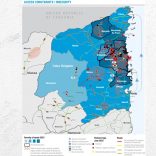Mozambique: Human trafficking ring dismantled, six victims rescued in Maputo
Mozambique ‘hidden debts’: Third ex-Credit Suisse banker pleads guilty

Brooklyn Federal Court, United States of America. [in file CoM]
Former Credit Suisse Global Financing Group director Surjan Singh has pleaded guilty to conspiring to “money laundering” in the Mozambique’s hidden debts case, according to a court document which Lusa has seen.
According to the ‘Criminal Cause for Declaration’ document, Surjan Singh is free on bail, but last Friday pleaded guilty on the fourth charge he faces – of conspiracy to commit the crime of money laundering.
Singh joins two former Credit Suisse colleagues, who have also pleaded guilty to participating in a scheme to defraud the state of Mozambique of about US$200 million, (€180 million) from a deal of over US$2.2 billion (€2 billion), causing a financial and economic crisis in the country and the suspension of donor support.

The illicit payments, which Subeva, a former vice president of Credit Suisse’s global financing unit, says were made in 2013, were linked to a Credit Suisse loan to a Mozambican public company.
Subeva explained to the judge that her boss, Andrew Pearse, told her that she was going to transfer US$200,000 (€179,000) to an account she had recently opened, which money came from bribes worth one million US dollars (€896,000) paid to Pearse by Boustani and Privinvest.
“I agreed to accept and keep these monies knowing they came from illegal activities,” Subeva, who saw the US prosecutor’s office drop three other conspiracy charges, confessed. It is not yet clear whether an agreement has also been struck regarding her penalty, which could range from acquittal to up to 20 years in jail.
In July, New Zealand banker Andrew Pearse also pleaded guilty to the charges against him, but it was unclear whether or not the former banker is cooperating with the US authorities, as his confession and other reports about the case are under wraps.
In the investigation, the US court accuses members of the former Government of Mozambique, Privinvest and three former Credit Suisse bankers of having set up a fake maritime defence project to receive more than US$200 million in bribes for themselves in connection with agreements signed in 2013 and 2014.
The disclosure of state-backed loans with no record in the public accounts and no disclosure to international partners led donors to cut international assistance and rating agencies to lower their outlooks on Mozambique’s sovereign credit.
As a result, the Mozambican government’s debt-to-GDP ratio increased, driving away international financing, and throwing Mozambique into default and its continuing economic and financial crisis.












Leave a Reply
Be the First to Comment!
You must be logged in to post a comment.
You must be logged in to post a comment.